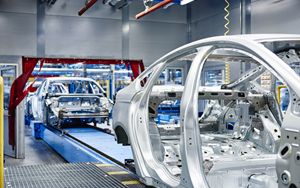(Finance) – “The postponement, to a later date, of the vote at the meeting of EU ambassadors on the Regulation which provides for the stop 2035 at the sale Of new diesel cars And gas it is an Italian success. The position of our government is in fact clear: a sustainable and equitable transition must be planned and carried out carefully, to avoid negative repercussions in terms of production and employment. Coreper’s decision to return to the issue in due course goes exactly in the direction of neutrality technological indicated by us”. So commented the Prime Minister, Georgia Melonson its social channels the decision of the Swedish presidency of the European Council.
To weigh, in addition to Italy’s no and the factually contrary positions of Poland And Bulgaria (although Sofia abstained in November), was the position of the Germany. The Minister of Transport Volker Wissing in fact, during the week he announced that the German decision would depend on the guarantee from the Commission to present a new proposal on the e-fuels that would allow new cars with combustion engines to circulate even after 2035 as long as they are powered by clean fuels.
“I recall that the proposal was made on the basis of technological neutrality and in the aim of achieving the goal of NetZero. We are in contact with the member countries on the new concerns that have emerged to evaluate which is the best way forward now”, explained the Commission spokeswoman, Dan Spinant.
For the Minister of Environment and Energy Security, Gilbert Picket, the new postponement “rightly takes into account the strong resistance of some European countries, with Italy in the front row, to an overly ideological and not very concrete formulation of the Regulation”. “Italy – added Pichetto – has a very clear position: electricity cannot be the only solution for the future, especially if it continues, as it is today, to be a supply chain for the few. Furthermore, focusing on renewable fuels is a strategic and equally clean solution, which makes it possible to achieve important environmental results, avoiding heavy negative repercussions in terms of employment and production”.
